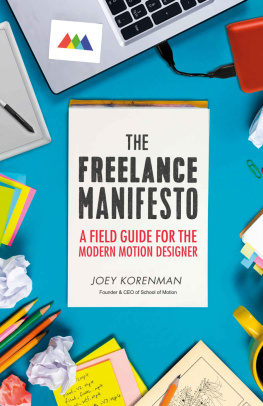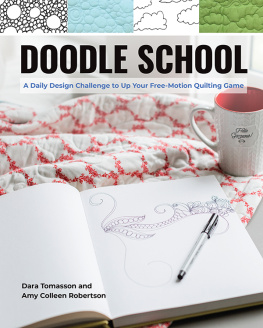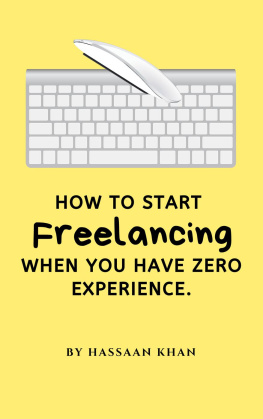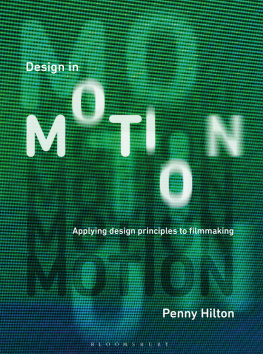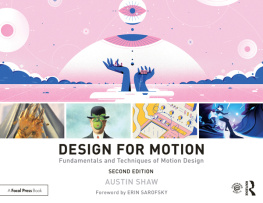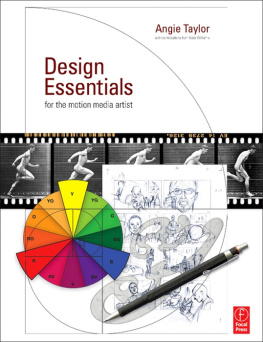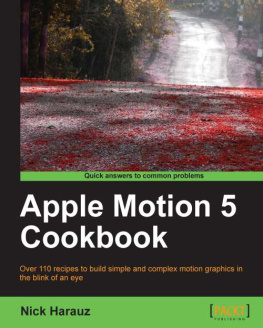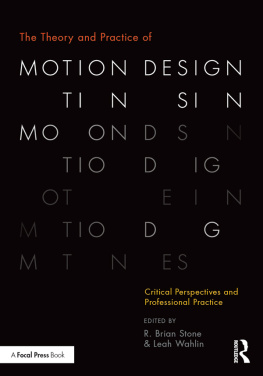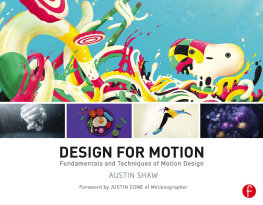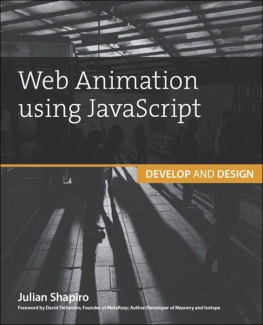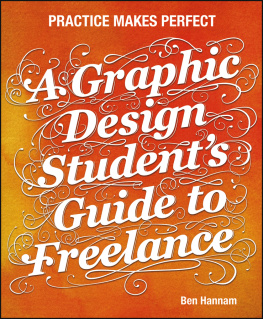All rights reserved.
Illustrations by Amy Unger.
To my gorgeous, patient, amazing wife, Amy, and my beautiful, crazy, wonderful kiddos, Layla, Emeline, and Elliot. Thank you for being a constant source of happiness and life to me, especially when I embark on endeavors (like writing a book) that remove me from society for weeks on end. I love you. Youre my why.
Foreword
By Jake Benjamin
Youre about to read, in book form, a series of lessons that I learned in person over beers. When you read what Joey has to say about freelancing, youll probably feel as skeptical, terrified, and exhilarated as I did almost a decade ago when I first heard his ideas. Heres how my story started. See if any of it feels familiar to you.
In 2008, I was an assistant editor at an awesome studio in Boston. Being an assistant was great at first. It was the only time in my career when I could easily pick the brains of more seasoned editors and learn not just the hows but also the whys when it came to being an editor. I happen to be very technically inclined, which was a major strength but, as I soon found out, also a huge weight holding me back. After a few years, I was still just an assistant editor/tech person and was ready to start moving up the food chain.
At my company, there was no shortage of budding assistants eager to make their mark on the world. I had seniority, but I was also the only one with the technical skills to fix problems for more senior artists as they popped up. I started watching edit after edit go to the other assistant editors. When I asked my boss about it, he told me the painful truth that there are plenty of editors but not enough good techs. Youll hear more about this problem in the book, by the way. Its a common issue that can come with being on staff.
It was painful to go in every day to work on all of these amazing projects and not be in a position to make a creative contribution to them. And when I did get edits, I felt like they were scraps thrown at me just to keep me happy enough to keep doing the tech work.
Then the recession hit, everyone in the industry was hurting, and the company I was at was no exception. Being the only assistant who was also a tech at the company protected me from getting laid off. Unfortunately, it was also keeping me from reaching my creative goals. To add insult to injury, my company instituted across - the - board pay cuts. I was still an assistant editor and not making very much. I was cash - poor , and even a small pay cut was going to make it very hard for me to pay my debts. This was my breaking point. I remember the feelings of frustration and helplessness. And do you know what people around me said when Id talk about it? Youre lucky to have a job. Right, thanks.
Cue Joey Korenman, this crazy - talented freelance editor/animator friend of mine who did a lot of work for my company. He was a really successful freelancer who was constantly working at the best shops in town. The day of the pay cuts, I was venting my frustrations to him, and he told me we needed to get beers after work.
That night Joey sat me down at a bar and told me it was time to quit my job and go freelance. He said that sometimes you hit a point where you just cant grow anymore at your company. Dissatisfaction can build and build, and at a certain point, its time to get out, before it turns into resentment, and you burn a bridge. That is exactly how I felt.
What he was saying made a lot of sense, but all I had at that point were some meager savings, a small portfolio of work, and a million questions. Not to mention that there was a recession going on. So, we did the math. For me to earn enough by freelancing to match my current salary at the time, I needed to get seven days of work per month.
Wait, that cant be right. Seven days a month? Shit. I can do that.
The math was right. Joey and I sat there for hours while I fired question after question at him about freelancing, each one basically an excuse I had as to why I didnt think Id be able to do it. Joey assured me that if I did the leg work and followed a plan, there was no doubt I would be able to attract clients. The most important thing he told me was that no matter whats going on in the industry, hiring managers are having just as much trouble finding talent as talent is having to find work. And, most importantly, Joey paid for our beers and told me the best part about freelancing: our beers were a tax write - off .
Joey laid down a foundation for what was about to become the best and scariest decision of my life. While everyone, it seemed, was clinging onto their jobs for dear life, I walked into my bosss office the next day and handed in my notice. Then I took Joeys advice and started hustling. It took me about two months to start getting fairly steady work, and already, I was making more money than I did when I had a staff job. At the end of my first year, I doubled my salary, and by year three, I was making six figures!
Then I decided I wanted to move to New York, a place where I didnt have any connections in the industry, the cost of living was higher, and Id be competing for work with super talented editors. I was basically starting from scratch as a new freelancer. All the same insecurities and feelings came back as I was about to enter a new market, only this time, I was armed with a more robust portfolio, years of experience as an actual editor under my belt, and a ton of practice using the freelancing knowledge I first learned from Joey. The transition was far easier than Id thought it would be. I started working almost immediately and continued to earn six figures, even in my first year in a brand - new market.
I guess the moral of the story is, grab a beer with Joey, but if you cant do that, at least listen to what he has to say about freelancing. Read this book and do what it says. Youll be glad you did.
Jake Benjamin
jaketotheb.com
Introduction
You probably bought this book hoping it would help you learn a few business tips to get your freelance career off the ground, and it will, but my hope is that itll do a hell of a lot more than that. This book is a Trojan horse. Its a whack upside your head to get you to take control of your career and life. Yeah, I know thats a lofty goal. And Im already starting to sound like a self - help guru, which makes both of us uncomfortable.
The truth is, youre going to hear a lot of things from me in this book that will make you uncomfortable, especially if you consider yourself an Artist. Thats good because this book is for Artists. Its for Motion Designers who care about being Artists and dont want to go brokeor lose sight of why they got into Motion Design in the first place.
As you read, try to keep this in mind: Comfort is the enemy of growth. Youre going to get uncomfortable, and youre going to grow.
So, ready to feel uncomfortable?
Why Freelance?
The freelance life is one of the best - kept secrets I know. Its a secret I uncovered by accident and with one word yes . Thats all it took, and suddenly, I was a freelancer. Its a secret that made me feel GUILTY when I started doing it. What do you mean I can triple my salary and work fewer days? And still do work Im proud to put on my reel? It seemed INSANE. Arent Artists supposed to be starving? I felt soooo guiltyuntil my first client paid my first invoice. Then all I could think was, Wow, this actually works. IT WORKS. Why isnt everyone doing this?
As crazy as it sounds, and I know it may sound reeeeealllly crazy, you can actually make more money and have more freedom and do cooler work all at the same time. Its bonkers, I know. Im going to show you exactly how I did it because thats the only way youll believe me.

